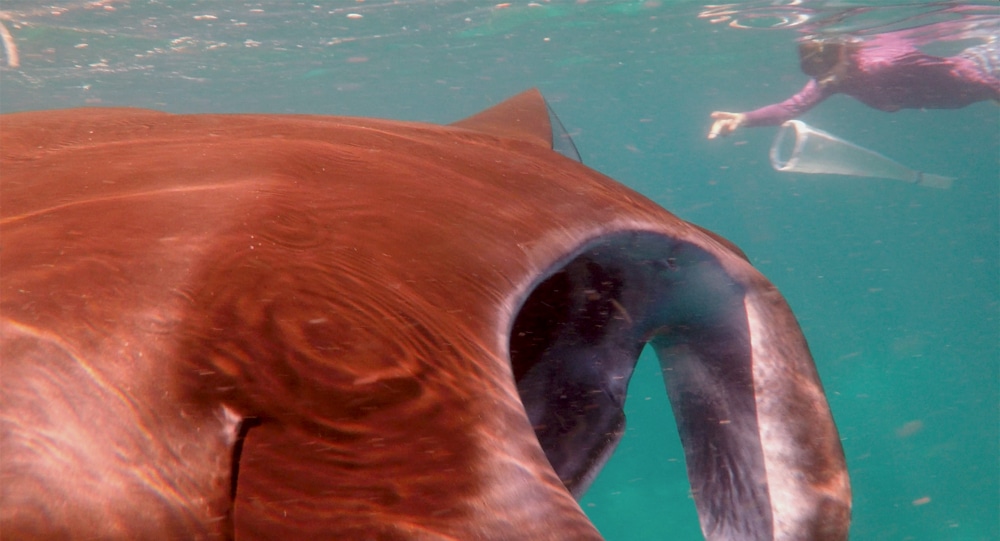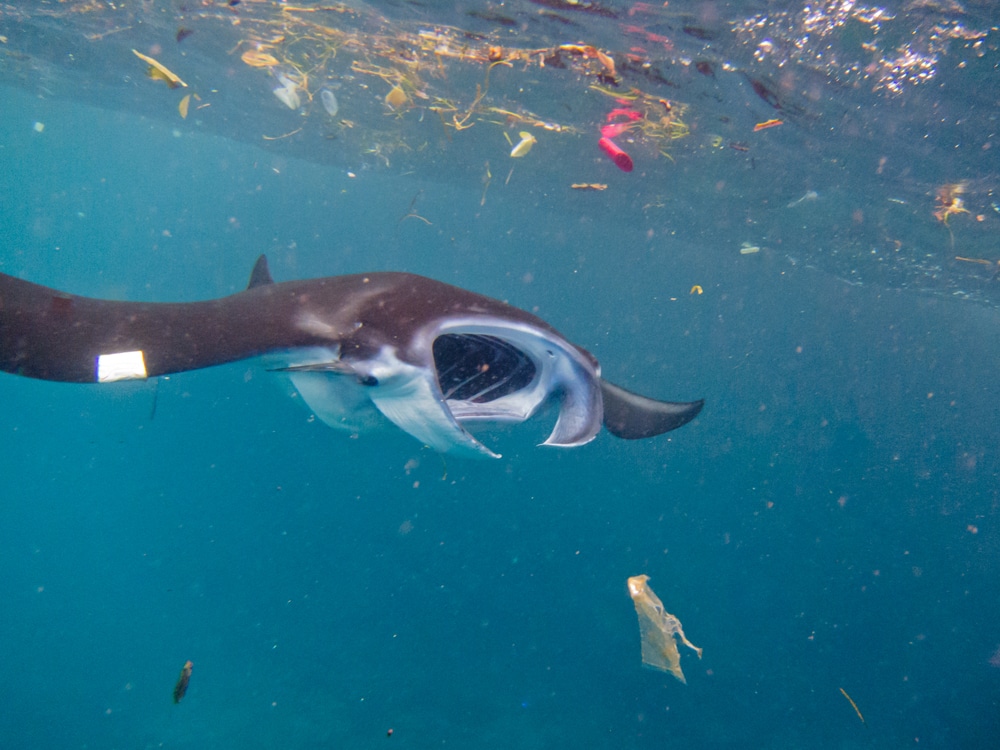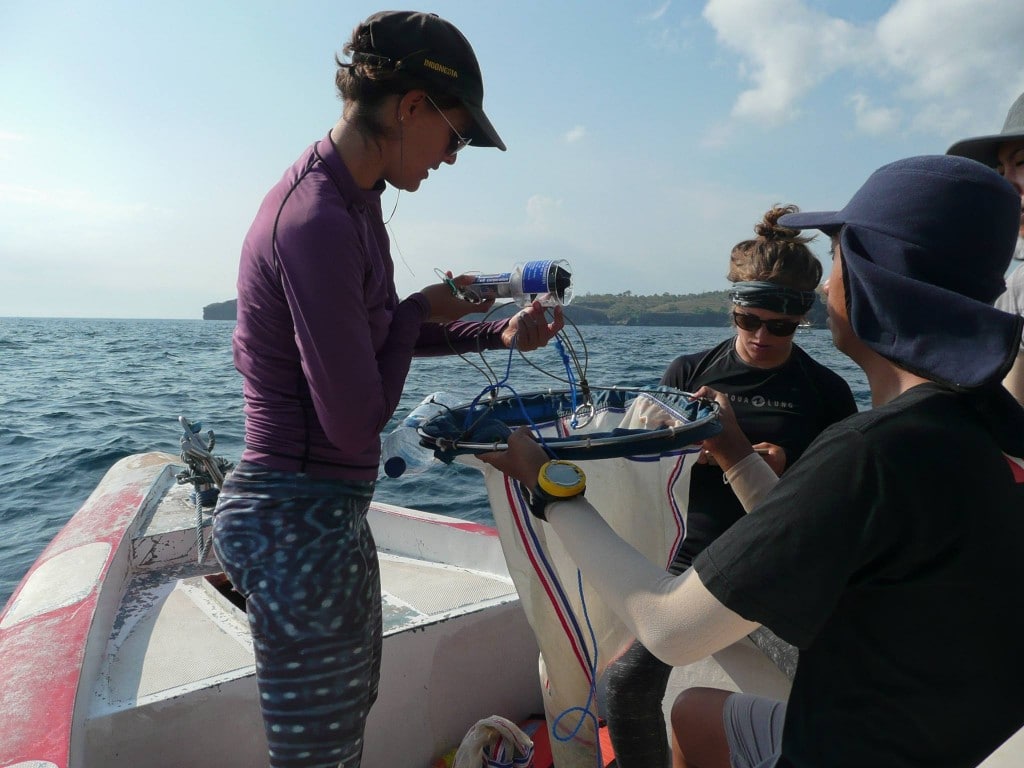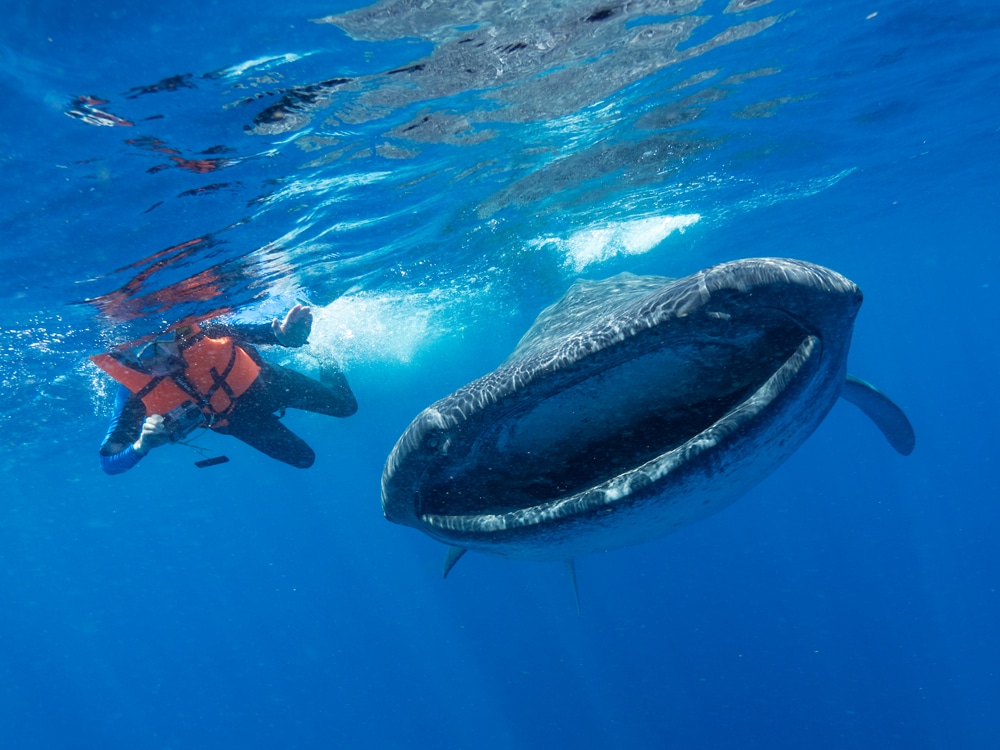Marine Life & Conservation
Microplastics: No small problem for filter-feeding ocean giants

Sharks, rays and whales impacted by microplastic pollution and associated toxins
Plastic pollution has recently gained increasing attention for its effects on marine mammals, fish and birds. However, it is still not fully understood to what extent small pieces of plastic, known as microplastics, impact marine life and ecosystems. Microplastic pollution is a major threat to filter-feeding animals such as manta rays, whale sharks and baleen whales, according to a new study published in the journal Trends in Ecology & Evolution. These iconic animals are at risk of exposure to microplastic contamination and associated toxins.
The paper, authored by researchers from the Marine Megafauna Foundation, Murdoch University (Australia), University of Siena (Italy) and Hawaii Institute of Marine Biology, stresses the significant risks microplastics pose to megafauna since these need to swallow hundreds to thousands of cubic meters of water daily in effort to capture plankton. They can ingest microplastics directly from polluted water or indirectly through contaminated prey. Filtering of indigestible plastic particles can block nutrient absorption and cause damage to the digestive tract of animals. Additionally, plastic-associated chemicals and pollutants can accumulate over decades and alter biological processes, leading to altered growth, development and reproduction, including reduced fertility.
Lead author Elitza Germanov, researcher at the Marine Megafauna Foundation and PhD student at Murdoch University, said: “Despite the growing research on microplastics in the marine environment, there are only few studies that examine the effects on large filter feeders. We are still trying to understand the magnitude of the issue. It has become clear though that microplastic contamination has the potential to further reduce the population numbers of these species, many of which are long-lived and have few offspring throughout their lives.”
“It is vital to understand the effects of microplastic pollution on ocean giants since nearly half of the mobulid rays, two thirds of filter-feeding sharks and over one quarter of baleen whales are listed by the IUCN as globally threatened species and are prioritized for conservation”, she adds.
It is challenging to assess plastic concentrations through conventional methods usually used to study animal diets, such as stomach analysis or collection of egested material, as these rely on opportunistic observations and are unsuitable for threatened species. However, using non-lethal sampling of small amounts of tissue (biopsy), researchers are now able to test for chemical tracers.
Professor Maria Cristina Fossi from the University of Siena, one of the first scientists who studied this problem, and colleagues reported an average of 0.7 plastic items per cubic meter of water around the Baja California peninsula, an important feeding ground for endangered whale sharks. The researchers estimated that whale sharks may be ingesting 171 items on a daily basis. Meanwhile in the Mediterranean Sea, fin whales are thought to swallow microplastic particles in the thousands per day.
“Our studies on whale sharks in the Sea of Cortez and on fin whales in the Mediterranean Sea confirmed exposure to toxic chemicals, indicating that these filter feeders are taking up microplastics in their feeding grounds. Exposure to these plastic-associated toxins pose a major threat to the health of these animals since it can alter the hormones, which regulate the body’s growth and development, metabolism, and reproductive functions, among other things”, says Professor Fossi who co-authored this paper.
Filter feeders are considered to be at high risk of exposure since many inhabit some of the most polluted waters, namely in the Coral Triangle region, Bay of Bengal, Gulf of Mexico and Mediterranean Sea. “As plastic production is projected to increase globally, future research should focus on coastal regions where microplastic pollution overlaps with the critical feeding and breeding grounds of these threatened animals. Many areas are biodiversity hotspots and of economic importance due to fisheries and marine tourism. Targeting these with the backing of local government and industry will help ensure efforts to mitigate the plastic threat are employed to their fullest,” Germanov concludes.
Elitza Germanov, Andrea Marshall, Lars Bejder, Maria Cristina Fossi and Neil R Loneragan ‘Microplastics: No small problem for filter feeding megafauna’ was published on 5 February 2018 and is available here.
The Marine Megafauna Foundation was created in 2009 to research, protect and conserve the populations of threatened marine megafauna around the world. ‘Megafauna’ are large marine species such as sharks, rays, marine mammals and sea turtles.
Find out more about Marine Megafauna Foundation here.
Marine Life & Conservation
Double Bubble for Basking Sharks

 The Shark Trust is excited to announce that, for two more days only, all donations, large or small, will be doubled in the Big Give Green Match Fund!
The Shark Trust is excited to announce that, for two more days only, all donations, large or small, will be doubled in the Big Give Green Match Fund!
Donate to Basking in Nature: Sighting Giants
The Shark Trust is hoping to raise £10k which will be doubled to £20k. This will go towards Basking in Nature: Sighting Giants. And they need YOUR help to reach they’re goal.
The Shark Trust’s citizen science project is to monitor and assess basking sharks through sightings; encouraging data collection, community engagement, and promoting nature accessibility. This initiative aims to enhance health and wellbeing by fostering a deeper connection with British Sharks.
Campaign Aims
- Increase citizen science reporting of Basking Sharks and other shark sightings to help inform shark and ray conservation.
- Provide educational talks about the diverse range of sharks and rays in British waters and accessible identification guides!
- Create engaging and fun information panels on how to ID the amazing sharks and rays we have on our doorstep! These can be used on coastal paths around the Southwest. With activities and information on how you can make a difference for sharks and rays!
- Promote mental wellbeing through increasing time in nature and discovering the wonders beneath the waves!
Donate, and double your impact. Click Here
Marine Life & Conservation
Leading UK-based shark conservation charity, the Shark Trust, is delighted to announce tour operator Diverse Travel as a Corporate Patron

 Corporate Patrons provide a valuable boost to the work of The Shark Trust. The Trust team works globally to safeguard the future of sharks, and their close cousins, the skates and rays, engaging with a global network of scientists, policymakers, conservation professionals, businesses and supporters to further shark conservation.
Corporate Patrons provide a valuable boost to the work of The Shark Trust. The Trust team works globally to safeguard the future of sharks, and their close cousins, the skates and rays, engaging with a global network of scientists, policymakers, conservation professionals, businesses and supporters to further shark conservation.
Specialist tour operator Diverse Travel has operated since 2014 and is committed to offering its guests high quality, sustainable scuba diving holidays worldwide. Working together with the Shark Trust will enable both organisations to widen engagement and encourage divers and snorkellers to actively get involved in shark conservation.
“Sharks are truly at the heart of every diver and at Diverse Travel, we absolutely share that passion. There is nothing like seeing a shark in the wild – it’s a moment that stays with you forever!” says Holly Bredin, Sales & Marketing Manager, Diverse Travel.
“We’re delighted to celebrate our 10th year of business by becoming a Corporate Patron of the Shark Trust. This is an exciting partnership for Diverse and our guests. We will be donating on behalf of every person who books a holiday with us to contribute towards their vital shark conservation initiatives around the world. We will also be working together with the Trust to inspire divers, snorkellers and other travellers to take an active role – at home and abroad – in citizen science projects and other activities.”
Paul Cox, CEO of The Shark Trust, said:
“It’s an exciting partnership and we’re thrilled to be working with Diverse Travel to enable more divers and travellers to get involved with sharks and shark conservation. Sharks face considerable conservation challenges but, through collaboration and collective action, we can secure a brighter future for sharks and their ocean home. This new partnership takes us one more valuable step towards that goal.”
For more information about the Shark Trust visit their website here.
For more about Diverse Travel click here.
-

 News3 months ago
News3 months agoHone your underwater photography skills with Alphamarine Photography at Red Sea Diving Safari in March
-

 News3 months ago
News3 months agoCapturing Critters in Lembeh Underwater Photography Workshop 2024: Event Roundup
-

 Marine Life & Conservation Blogs2 months ago
Marine Life & Conservation Blogs2 months agoCreature Feature: Swell Sharks
-

 Blogs2 months ago
Blogs2 months agoMurex Resorts: Passport to Paradise!
-

 Blogs2 months ago
Blogs2 months agoDiver Discovering Whale Skeletons Beneath Ice Judged World’s Best Underwater Photograph
-

 Gear Reviews3 months ago
Gear Reviews3 months agoGear Review: Oceanic+ Dive Housing for iPhone
-

 Marine Life & Conservation2 months ago
Marine Life & Conservation2 months agoSave the Manatee Club launches brand new webcams at Silver Springs State Park, Florida
-

 News3 months ago
News3 months agoWorld’s Best Underwater Photographers Unveil Breathtaking Images at World Shootout 2023









